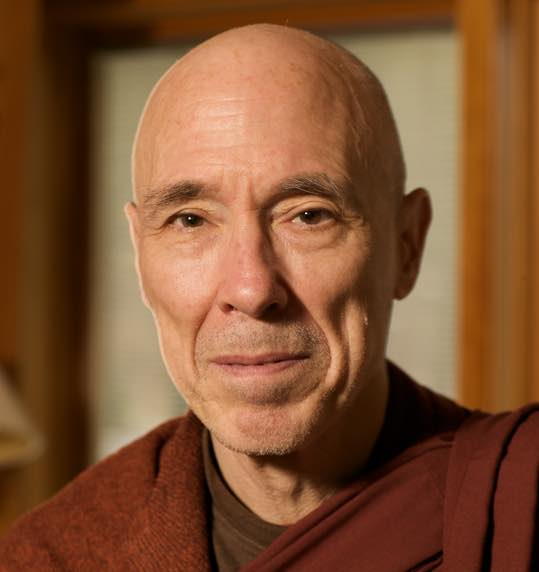By Ven. Bhikkhu Bodhi
We live in a violent world, a tumultuous world where the cycle of killing and maiming, of rage and revenge, seems to turn without any end in sight. In the U.S. over the past few months we have seen angry young men equipped with assault rifles going on mass killing sprees. We’ve seen outbursts of racial and ethnic hatred, the rise of right-wing extremists, even a violent attack on our nation’s Capitol building. The international scene is hardly better, as we read about terrorist bomb attacks, lethal blockades, and a new surge of destructive conflict in the Middle East, claiming the lives of both Palestinian and Israeli civilians.
The destruction of human life never solves the problem it is intended to resolve, and its consequences are always tragic. It takes just a few seconds to pull the trigger of a gun, but for those who lose a loved one to the bullets, the heartache lasts a lifetime. A bomb in a crowded market goes off in seconds, but it leaves behind weeping families. An air raid on a congested city takes less than an hour, but the anguish felt by the parents who lose a child, the children who lose their parents, the husband or wife who loses their beloved partner, never heals. In the trail of killing there follows only pain, heartache, and unquenchable grief!
The question we should all ponder is: how do we bring this whirlpool of hatred and destruction to an end? How can we build a world of peace, without war and violence? How can we recover our own humanity, at risk of being erased by this excess of violence and killing?
Light on these questions comes from the Buddha, whose birth, enlightenment, and nirvana we celebrate on Vesak, the full-moon day of May. The Buddha traces the most thorny problems of human life to their deepest roots in the mind. Whatever evil deeds there are, he says, all originate in the mind, and therefore they must ultimately be extinguished in the mind. This applies as well to killing, which is born from hatred and resentment.
The path to conquering hatred is long and difficult, but it begins with something over which we have direct control, namely, our conduct. The foundation of the Buddha’s path is the living of a moral life, a life governed by precepts, and the first precept in the Buddha’s moral code is to abstain from destroying life—from the destruction of all sentient life, whether humans or animals.
This precept has far-reaching implications. As a rule of training, it is stated simply as “abstaining from the destruction of life,” but in a more expanded version the Buddha says that one should refrain from destroying life oneself, encourage others to refrain from killing, speak in praise of abstinence from killing, and rejoice when one learns that others abstain from destroying life.
To understand the reason for this precept requires that we first perform a simple act of introspection. When we look into our own mind, we can see that our most basic urge is to live, that we instinctively recoil from death and from all threats to our survival. On the basis of this simple act of reflection, we can immediately realize that every other person—whether a dear one or a stranger, whether of our own racial group or another group, whether of our own religion or another religion—similarly wishes to avoid death. We can intuitively grasp that every other person wants to live, and to live well.
This reflection awakens in us a deep sense of empathy with all humanity, and indeed with all other sentient beings. The blinkers of self-absorption fall away, so that we can see ourselves in others and others in ourselves. This sense of empathy manifests as a feeling of solidarity, a close identification with others, inspiring in us the effort to protect their lives, to remove the obstacles to their well-being, and to help them thrive and realize their fullest potentials.
It is impossible for us in our individual capacity to eliminate all the violence and random destruction we witness all around us. But by living a life of harmlessness we can make a difference; we can contribute to a more peaceful and harmonious world. If we firmly hold to the precept of not-killing and cultivate a mind of love and compassion for all humanity and all sentient beings, we will become an island of peace and tranquility in the midst of the turbulence. We will become a light in the darkness, a source of blessings and good will flowing out to the whole world.
If enough of us commit ourselves to a life of non-violence, to love and compassionate action, we might just succeed in setting in motion a counter-current to the tide of destructive violence that engulfs us and brings so much grief. We might transform old enmities into a celebration of our essential unity, join hands across boundaries, and take a few small steps toward the state of global peace for which we yearn.
From all of us at Buddhist Global Relief: We wish you all a happy and peaceful Vesak!





